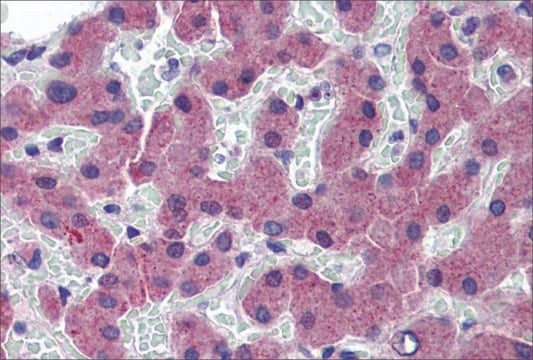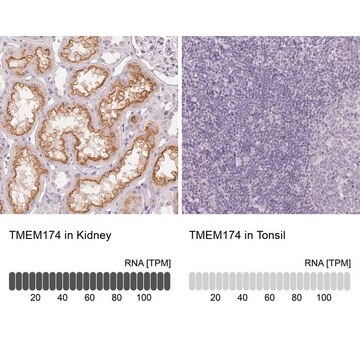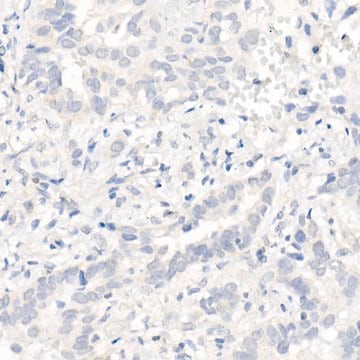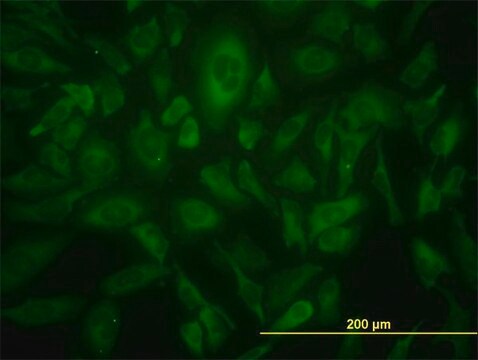MABS1981
Anti-TfR2 Antibody, clone 9F8-1C11
clone 9F8 1C11, from mouse
Synonyme(s) :
Transferrin receptor protein 2
About This Item
IP
WB
immunoprecipitation (IP): suitable
western blot: suitable
Produits recommandés
Source biologique
mouse
Niveau de qualité
Forme d'anticorps
purified immunoglobulin
Type de produit anticorps
primary antibodies
Clone
9F8 1C11, monoclonal
Espèces réactives
human
Technique(s)
immunocytochemistry: suitable
immunoprecipitation (IP): suitable
western blot: suitable
Isotype
IgG1κ
Numéro d'accès NCBI
Numéro d'accès UniProt
Conditions d'expédition
ambient
Modification post-traductionnelle de la cible
unmodified
Informations sur le gène
human ... TFR2(7036)
Description générale
Spécificité
Immunogène
Application
Immunohistochemistry Analysis: A representative lot detected Tfr2 in Immunohistochemistry applications (Vogt, T.M., et. al. (2003). Blood. 101(5):2008-14).
Western Blotting Analysis: A representative lot detected Tfr2 in Western Blotting applications (Vogt, T.M., et. al. (2003). Blood. 101(5):2008-14; Byrne, S.L., et. al. (2013). PLoS One. 8(7):e70199; Zhao, N., et. al. (2013). Biochemistry. 52(19):3310-9).
Immunoprecipitation Analysis: A representative lot detected Tfr2 in Immunoprecipitation applications (Vogt, T.M., et. al. (2003). Blood. 101(5):2008-14; Johnson, M.B., et. al. (2004). Blood. 104(13):4287-93).
Epigenetics & Nuclear Function
Qualité
Western Blotting Analysis: 1 µg/mL of this antibody detected Tfr2 in 10 µg of K562 cell lysaste.
Description de la cible
Forme physique
Stockage et stabilité
Autres remarques
Clause de non-responsabilité
Vous ne trouvez pas le bon produit ?
Essayez notre Outil de sélection de produits.
Code de la classe de stockage
12 - Non Combustible Liquids
Classe de danger pour l'eau (WGK)
WGK 1
Certificats d'analyse (COA)
Recherchez un Certificats d'analyse (COA) en saisissant le numéro de lot du produit. Les numéros de lot figurent sur l'étiquette du produit après les mots "Lot" ou "Batch".
Déjà en possession de ce produit ?
Retrouvez la documentation relative aux produits que vous avez récemment achetés dans la Bibliothèque de documents.
Notre équipe de scientifiques dispose d'une expérience dans tous les secteurs de la recherche, notamment en sciences de la vie, science des matériaux, synthèse chimique, chromatographie, analyse et dans de nombreux autres domaines..
Contacter notre Service technique








